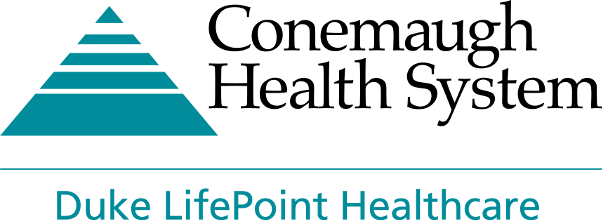Prenatal Care
Prenatal care before delivery is essential to ensuring a healthy pregnancy for mom and baby. This care includes regular office visits with a physician, midwife, or certified nurse practitioner, completing scheduled tests, and attending prenatal classes.
Regular Office Visits
Regularly scheduled visits with physician, midwife, or certified nurse practitioner are needed to ensure healthy development of baby. Healthcare providers can detect health problems early when mothers are seen regularly. Early treatment can cure or prevent health problems. Regularly scheduled visits during pregnancy are essential to assess both maternal and fetal health, growth and development, and to keep mom up-to-date with a recommended of testing. Visits are scheduled monthly through the 28th week of pregnancy. During the third trimester, visits will occur every 2-3 weeks until 36 weeks. Visits will then occur weekly until delivery.

What to Expect
During mom's first appointment, our healthcare team will ask about health history including diseases, operations, and prior pregnancies, obtain family history information, complete a physical exam including pelvic exam and pap test, take blood and urine for lab work, check blood pressure, height and weight, and calculate due date for baby's arrival.
Later appointments in pregnancy include blood pressure check, measure of weight gain, measure of abdomen to check baby's growth, baby heart rate monitoring, and ultrasound tests if ordered by the physician.
Patients are encouraged to write down questions to ask the healthcare provider prior to the scheduled appointment to ensure understanding pregnancy progress and health status.
Scheduled Tests
During pregnancy, it is important to monitor health of mom to ensure a proper environment for baby to grow and develop. The healthcare provider will schedule tests including blood work to check for anemia or infection, blood type and Rh, genetic testing if desired, and blood glucose screening for gestational diabetes.
Prenatal Classes & Support Services
Expectant mothers attend prenatal classes prior to delivery, especially for first-time pregnancies. Childbirth classes can be scheduled by calling (814) 534-9009.
Prepared Childbirth Class (On-site or Online)
On-site: A series of three, two-hour classes for mom and labor coach should be taken during the final trimester of pregnancy. Topics include signs of labor, process of labor and childbirth, relaxation and breathing techniques important to the mother's comfort during labor and delivery, comfort measures, pain management, and anesthesia.
Online: Online child birth classes - Your Place! Your Pace! All from the convenience of your own home.
For more information or to register for on-site or online classes, call (814) 534-9009.
Breastfeeding Class
A three-hour class is open to pregnant women interested in learning more about breastfeeding, including the labor coach. Class topics include advantages of breastfeeding for mother and infant, preparation for breastfeeding, feeding after delivery, and support services.
Lactation Support Services
Breast milk is ideal food for baby. Conemaugh Health System Certified Lactation Consultants offer support and assistance to each mother's needs immediately following birth. Breastfeeding assistance and skills are tailored to meet the needs of mother and baby.
Big Brother & Big Sister Class
A fun, interactive class offered to children ages two to eight years old who will soon become a big brother or sister. Participants take a tour of the maternity department, dress and diaper lifelike baby dolls, and learn about behaviors of a newborn.
Nutrition for a Healthy Mom and Baby
Eating healthy food is a large part of prenatal care. During pregnancy, it is important to be aware of maintaining healthy nutrition, rather than "eating for two". Eating a variety of healthy foods will help ensure meeting baby's needs for development. Expectant mothers are encouraged to eat fruits, vegetables, whole grains, calcium-rich foods, foods low in saturated fat, and drink plenty of fluids especially water.
- Protein is vital for tissue growth and healthy blood. Sources of protein are pasteurized low-fat cottage cheese, hard cheeses, low-fat yogurt, egg whites, limited fish products, poultry, lean red meats, tofu, legumes, peanut butter, and milk.
- Calcium builds strong bones and teeth, and helps control blood pressure. Growing babies need calcium for proper bone growth. Sources of calcium include milk, cottage cheese, hard cheeses, yogurt, and green leafy vegetables.
- Carbohydrates are a constant source of energy needed for growth. Sources of carbohydrates include rice, fruits, whole-grain breads, cereals, and pasta.
- Prenatal vitamins and minerals may be prescribed by your care provider to assist in baby’s development. When taking nutritional supplements, choose a prenatal supplement instead of individual vitamins and minerals. Be sure to check with your physician or midwife prior to taking any supplement.
- Folic acid is a B vitamin that helps prevent birth defects of the spine and brain. Folic acid isfound in green leafy vegetables, dried beans, and whole-grain breads and cereals. All women of childbearing age are encouraged to include folic acid in their daily nutrition. Your physician may also recommend a pill supplement.
- Iron prevents anemia and reduces risk of preterm birth and low birth weight. During pregnancy, blood volume and iron increases in mom's body. Iron helps to make blood and helps baby grow. Sources of iron include green leafy vegetables, fortified cereals, liver, and lean red meats. Supplements may be prescribed by a physician if iron levels are too low.
- Fat is needed in a healthy diet, but intake of fat should be 30% or less of total daily calories during pregnancy. Cholesterol is a fatty substance found in animal products that can lead to artery blockage. Select low-fat dairy products and avoid rich and fried foods. Omega-3 fatty acids help with baby’s brain and visual development.
Physical Activity
Exercise is beneficial to both mom and baby, and helps mom prepare for upcoming labor. Pregnancy is not a time to start a new exercise routine or vigorous workout programs. Expectant moms should ask the healthcare provider about appropriate types of exercise during pregnancy.
